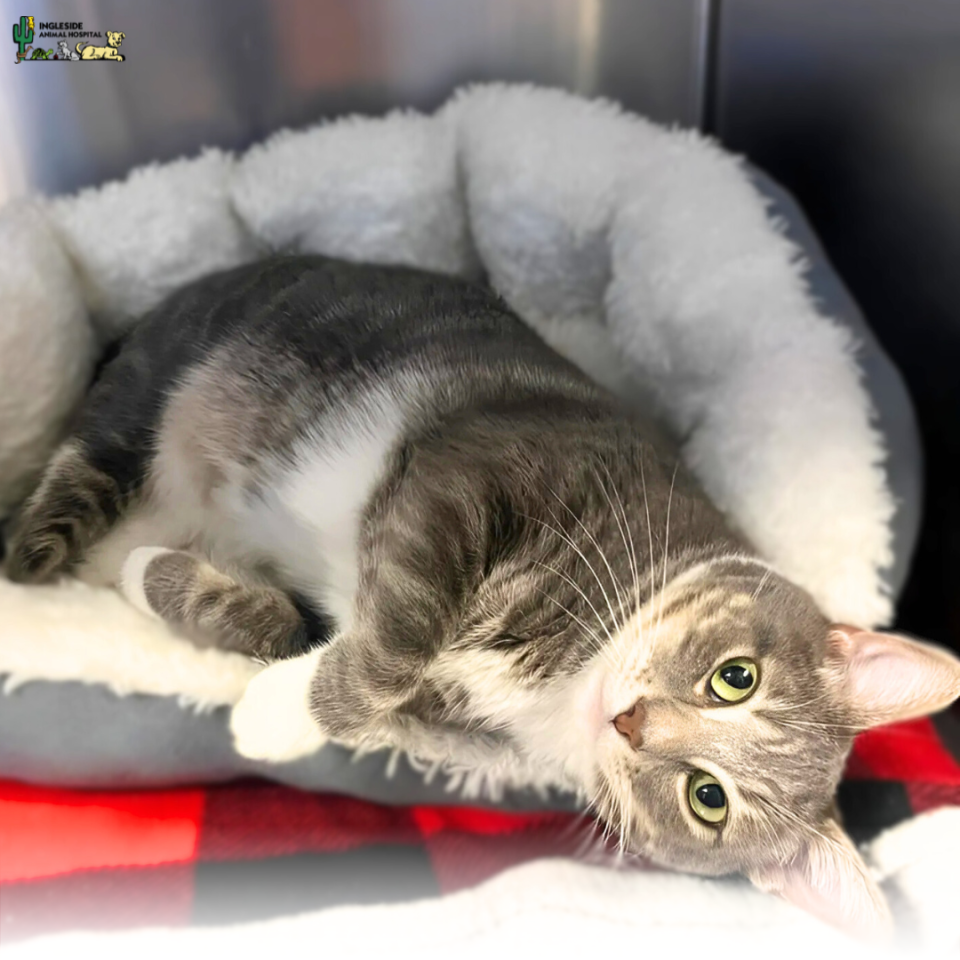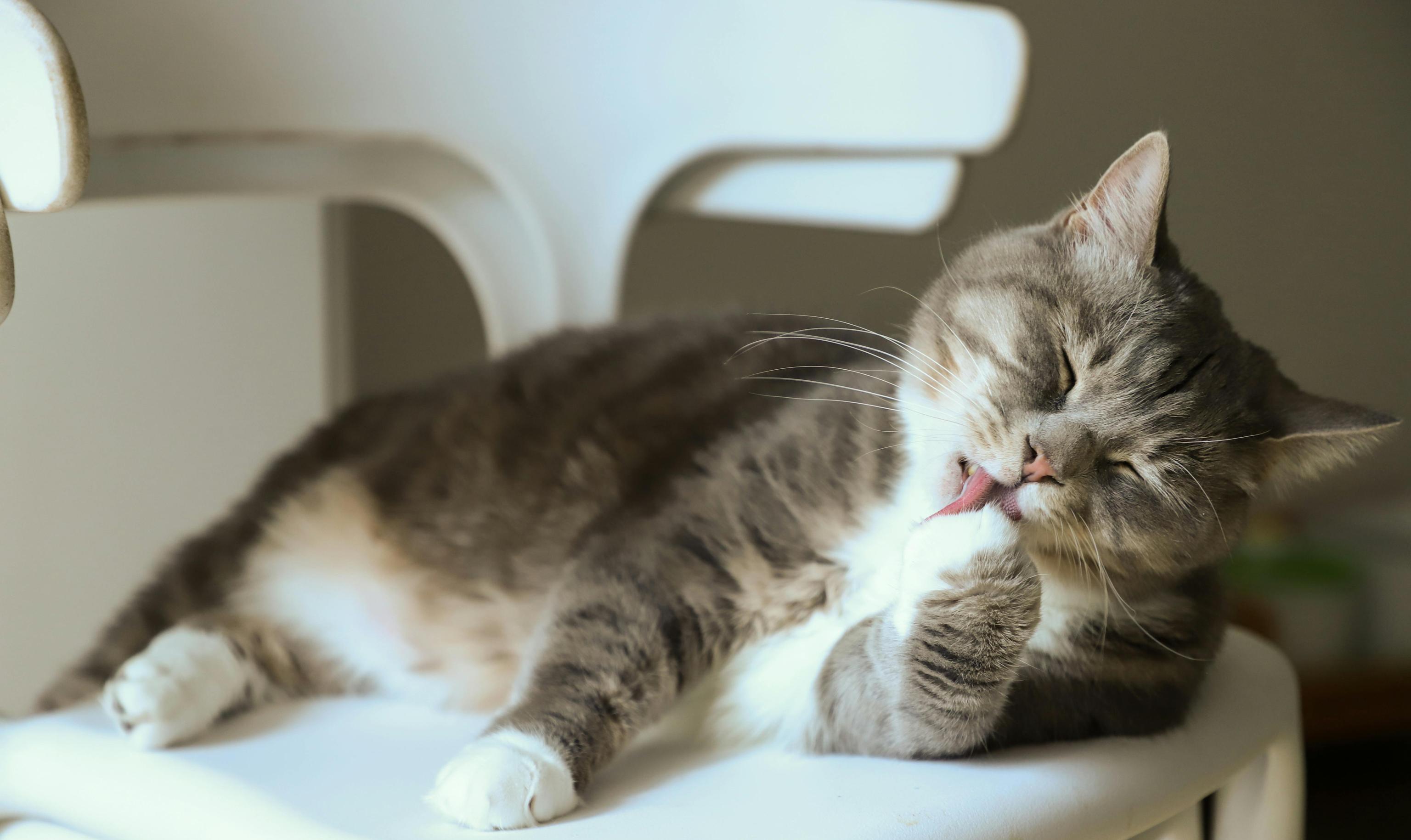
The Dangers Of Fleas And Ticks For Cats
Of all the pesky nuisances out there your cat might face, fleas and ticks are two of the most troublesome. For cats, fleas and ticks pose a variety of potential health issues, including:
- Skin irritation
- Itching
- Rashes & Skin Infections
- Transmission of disease and illness
- Suffering
Another danger of fleas and ticks for cats is infestation of the home and possible transmission of disease to humans through sharing a living space. Many people believe that indoor cats are somehow immune to fleas and ticks, but this is not true. Fleas and ticks can enter homes on visiting pets and people's clothes. Fleas and ticks will seek out your cat to feed and live. Once a flea is on your cat, it stays and will produce 30-50 eggs within 24 hours. These eggs are the consistency of sand and will fall off the cat, land in the carpet or bedding and become an adult flea in 14 to 365 days depending upon the environmental conditions.

Flea And Tick Prevention for Cats
At Ingleside Animal Hospital when it comes to fleas and ticks, our primary focus is on prevention. Prevention is important because it stops a serious problem before it starts. If you are starting to notice signs and symptoms of fleas and ticks, that indicates that you are already dealing with an infestation. With good education and the right prevention products you can easily avoid a flea and tick infestations.
Every year, our veterinarians review all available flea and tick products to ensure that our recommendations are as up to date as possible. Our considerations include safety, effectiveness and cost. Based on these factors we will work with you to customize a parasite prevention plan for your pets and family.
Signs That Your Cat May Have a Flea or Tick Infestation
- Visible fleas or ticks
- Scratching
- Red or irritated skin
- Scabs and/or flakes
- Excessive grooming
Common Cat Flea and Tick Treatments
There are many different cat flea treatment products on the market. This includes a plethora of remedies involving substances that have no medical validity where fleas and ticks for cats are concerned. Our veterinarians would strongly recommend against numerous over the counter flea and tick treatments. Some common cat flea treatment methods include:
- Oral Tablets: These are a great choice for both prevention and treatment of fleas and ticks, while being safe for both your cat and your family. Oral tablets that treat fleas and ticks can only be obtained from your veterinarian.
- Spot-On Flea Treatments: There are many different spot-on flea treatments with varying effectiveness and different spectrums of use. At your next veterinary appointment, we will help you choose the most effective spot-on flea and tick treatment for your cat.
- Cat Flea Collars, Powders and Sprays: We do not recommend the use of flea collars, powders or sprays. While these products were the mainstay of flea control in past years, they are more toxic and less effect than the products we currently recommend.
Finding And Treating Ticks on Cats
Ticks on cats cause welts and bruises around the area being fed on. It is also common to find the tick still attached. If you find a tick on your cat, please bring your cat in so we can show you the safest way to remove the tick and help formulate a plan to avoid ticks going forward. The various methods for treating ticks on cats include:
- Spot-On Treatments
- Oral medication
- Tick Collars
What You Should Know About Cat Flea Prevention/Treatment
There are many different remedies and methods out there for treating fleas and ticks on cats, and there are also various over-the-counter cat flea medicine options on the market today. The rapid influx of so many untested cat flea medicine brands in the early 2000's, and specifically spot-on treatments, led the Environmental Protection Agency to issue a warning in 2010 about possible toxic reactions to cat flea medicine. This resulted from an increase in cat fatalities attributed to the inappropriate use of some products.
Link to EPA webpage article from AVMA.org
Schedule An Appointment To Properly Address Cat Fleas And Ticks
To ensure that your cat is protected against these pesky parasites, schedule an appointment with your veterinarian as soon as possible. Our veterinarians and support staff have extensive experience in both prevention and treatment, and we are here to help.
If you still have other questions and you'd like to reach out to us, you can call us directly at (602) 840-3446, you can email us, or you can reach out on social media. But please do reach out, and we'll get back to you as fast as we can.
For more than five decades, families from greater Phoenix, Arcadia, Paradise Valley, Tempe, and Scottsdale in Arizona have come to rely on our trustworthy and compassionate care. As an AAHA-accredited, Fear Free, and Cat Friendly facility, your pet’s well-being and comfort are our highest priorities.
